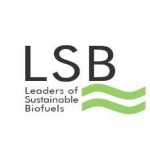 PRESS-RELEASE – The advanced biofuel sector is committed to heavily invest in Europe, create jobs and bring significant environmental benefits, if regulation enables.
PRESS-RELEASE – The advanced biofuel sector is committed to heavily invest in Europe, create jobs and bring significant environmental benefits, if regulation enables.
The Leaders of Sustainable Biofuels (LSB) are deeply concerned about the future for advanced biofuels in Europe. The European Commission just released the White Paper on European Energy & Climate policy up to 2030. Here Europe, the world leader in CO2 emission reduction and renewable energies so far, turns back in terms of ambition and measures. The absence of a binding target for sustainable transports is certainly a threat to the whole sector and represent a missing opportunity.
Between 1990 and 2010, the share of CO2 emissions from transports grew from 20.5 to 28.8% of the total CO2 emissions in EU 27, despite an increase in fuel efficiency, as indicated by the statistics of the European Environment Agency in 2012. The European Union will not meet its CO2 reduction goals without pursuing a actionn transports, including biofuels.
Not only; Europe will deprive itself of new investments and jobs in advanced biofuels for which a long term, stable policy framework is a prerequisite. Europe should set a binding target for sustainable transports and a dedicated sub-target for advanced biofuels, combined with the GHG emission reduction goal, to ensure that future growth in the EU biofuels market comes from the best performing biofuels.
If Europe does not manage to give these clear and long-term signals, investments in advanced biofuels will move to other regions outside of Europe where frame work conditions are more favourable. EU Member States will lose precious opportunities for creating new jobs, promoting EU-based industrial development in a very innovative field, and creating supplementary value especially in rural areas and agriculture, in addition to reducing EU greenhouse gas emissions.
We believe that this contradicts the many ambitions and European policies that aim to promote job creation through the deployment of sustainable innovative EU technologies and to harvest the fruits of both public and private significant investments in R&D.


